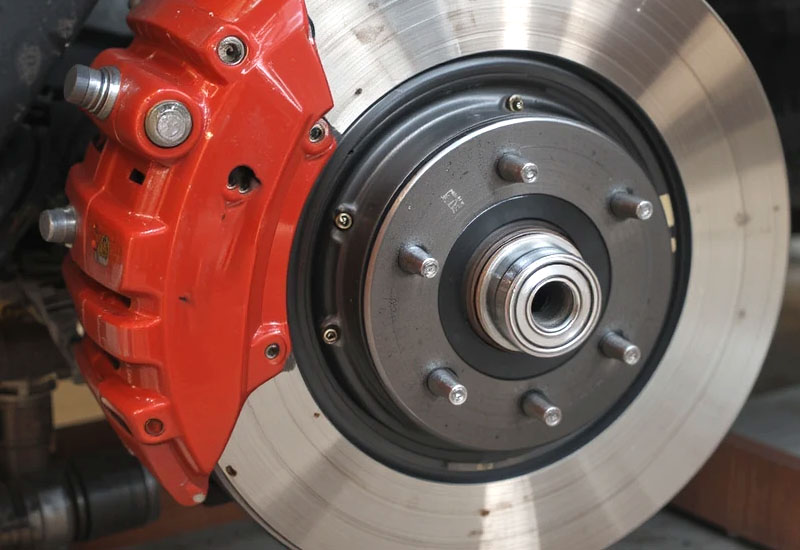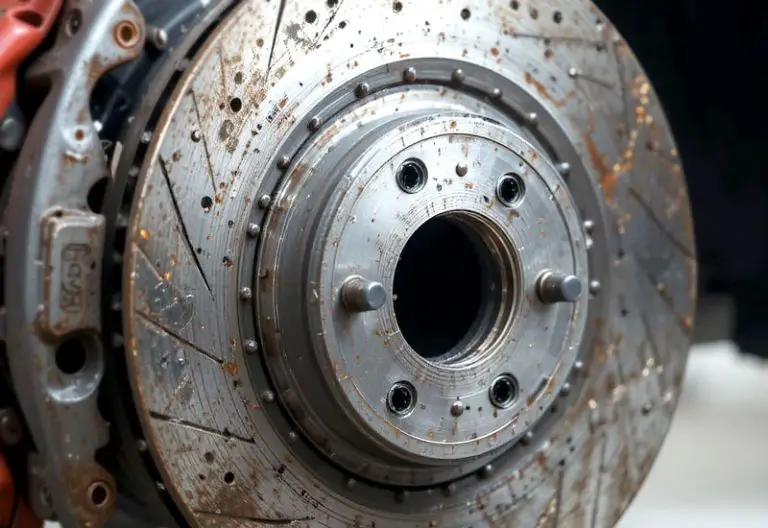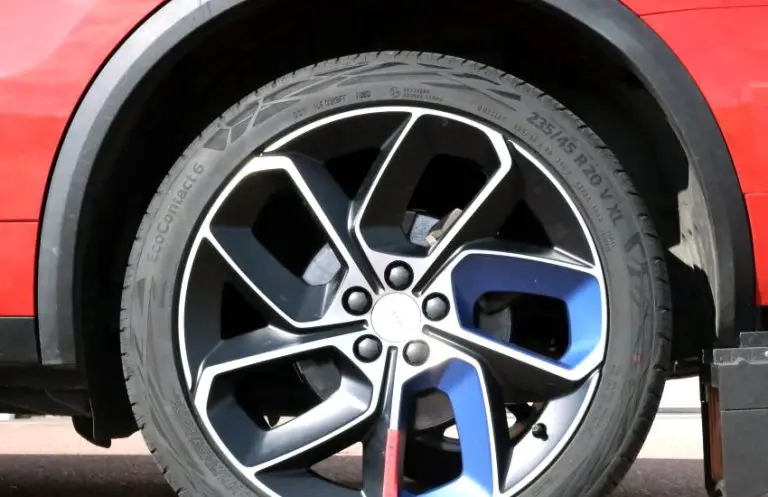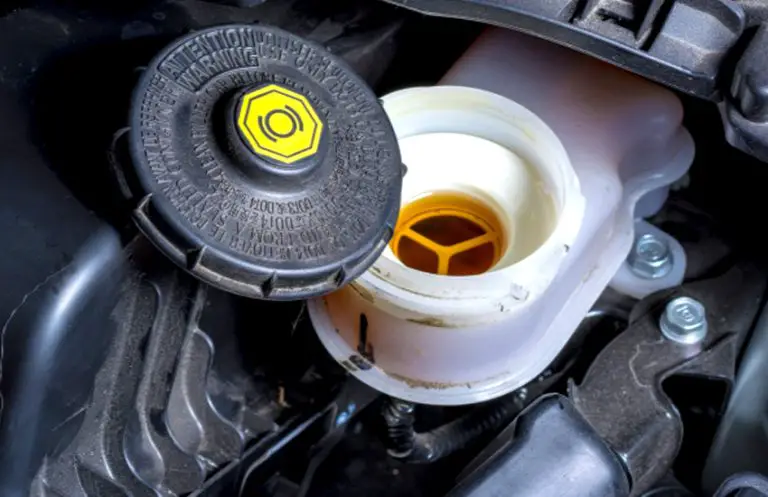Idling is something we don’t always pay attention to, but it plays a crucial role in how our vehicle runs. Have you ever wondered if your brake booster could mess with your engine’s idle? Maybe you’re dealing with an engine that’s stalling, or the idle is too high or low. The truth is, the brake booster might be the culprit. If you’re curious, keep reading to understand how it works and what you can do about it!

Understanding Brake Boosters and Idling
So, let’s kick things off by understanding the basics. A brake booster, also called a power brake booster, helps make pressing the brake pedal easier by using engine vacuum or hydraulic pressure. It’s a pretty smart piece of engineering that ensures you don’t have to put your entire weight into braking.
On the other hand, idling refers to the engine running when your car isn’t moving, typically with the transmission in “Park” or “Neutral.” The engine should maintain a steady idle speed—usually between 600 and 1000 RPM—without stalling. But when there’s an issue with the brake booster, this can get a bit tricky, as it can mess with the engine’s vacuum, leading to unstable idling.
In this article, we’ll dive deep into how a brake booster works, how it could affect your car’s idling, and what you can do if you’re facing problems. Ready? Let’s go!
How Brake Boosters Work and Their Role in the Engine
What Exactly is a Brake Booster?
First, let’s break it down. A brake booster is a crucial component in your car’s braking system that makes it easier for you to apply pressure to the brakes. If you’ve ever pressed the brake pedal and felt like there was little resistance, it’s likely because the brake booster is working its magic. Essentially, it uses vacuum or hydraulic pressure to amplify the force you apply to the pedal, giving you much better stopping power.
In most cars, a vacuum brake booster is used, which relies on the engine’s vacuum to create the necessary force. The brake booster connects to the engine’s intake manifold, drawing air from there to create a pressure difference that assists braking. This connection is key because the engine’s vacuum is constantly changing depending on the engine’s revolutions per minute (RPM), and any issues in this system can affect other parts of the engine, including the idle speed.
Understanding Idling and Why It Matters
When your car is idling, the engine is running but the vehicle isn’t moving. This low-rev condition is important because it allows the engine to run without stalling while the car isn’t in motion. The vehicle should maintain a steady idle speed, which is set by the engine control unit (ECU). The ideal idle speed depends on the type of vehicle but typically ranges between 600 and 1000 RPM for most cars.
Idling is a crucial time for your car. It’s when the engine is warming up, or when you’re at a stoplight or waiting in traffic. When the idle speed is unstable, it can lead to poor engine performance, stalling, or a rough driving experience. So, it’s important for the idle to be smooth and steady. But can something as simple as the brake booster affect this smooth idling process? Let’s take a deeper dive.
How Brake Boosters Affect Engine Vacuum
The engine vacuum is a byproduct of the engine’s combustion process. As the engine runs, it generates vacuum pressure that’s used for various functions, including the brake booster. A healthy brake booster draws a steady vacuum from the intake manifold to help you brake easily. However, if there’s an issue with the brake booster, it can cause a vacuum leak or malfunction, which directly impacts the engine.
A common issue occurs when the brake booster diaphragm develops a leak. The diaphragm is responsible for separating the vacuum side of the booster from the atmospheric side, but when it’s compromised, air can sneak in. This can lead to a loss of vacuum, which might cause your engine’s idle to fluctuate. Since the engine control module (ECM) relies on this vacuum for stable operation, any variation in vacuum pressure can cause erratic idling behavior.
Can a Faulty Brake Booster Lead to High or Low Idle?
The simple answer is: yes, a faulty brake booster can affect your idle speed. If the vacuum system of the brake booster is compromised, the engine might struggle to maintain a stable idle. The engine may experience high idling speeds, stalling, or irregular surges in RPM.
For instance, a vacuum leak caused by a broken brake booster diaphragm can lead to excess air entering the intake system. This extra air throws off the air-fuel mixture that the engine needs to run smoothly, causing the idle to fluctuate. You might notice the engine revving too high (high idle) or having trouble staying on without stalling (low idle).
Symptoms of Brake Booster Issues Affecting Idling
So, what should you look for if you think your brake booster is the culprit behind unstable idling? Here are some common symptoms:
- High Idle: The engine revs higher than normal when idling, which could be the result of excess air entering through a vacuum leak.
- Rough Idle: The engine may feel shaky, as it’s struggling to maintain a steady RPM.
- Stalling: If the engine can’t maintain enough vacuum to stay running, it might stall unexpectedly.
- Hard Braking: If the brake booster is leaking or not functioning properly, you may notice it’s harder to press the brake pedal.
Can You Fix This Problem?
If you notice any of these symptoms, you’re probably wondering what you can do about it. Diagnosing and fixing brake booster issues usually involves a few key steps:
- Inspect for Leaks: Start by checking for visible damage to the brake booster or vacuum hoses. Leaks are the most common cause of erratic idling.
- Test the Brake Booster: You can perform a simple test to check if the brake booster is functioning correctly. With the engine off, press the brake pedal several times. If the pedal becomes hard after a few presses, this could indicate a faulty booster.
- Replace the Brake Booster: If it turns out that the brake booster is indeed the cause of the issue, replacing it is usually the best solution. If you’re not comfortable doing this yourself, a professional mechanic can handle the job.
Troubleshooting and Solutions for Brake Booster Issues
Diagnosing Vacuum Leaks
One of the first things to check if you’re having idle problems is whether there’s a vacuum leak. As we mentioned earlier, a faulty brake booster can cause a vacuum leak, which leads to irregular idling. To diagnose this, you can listen carefully around the brake booster and intake manifold for any hissing sounds, which would indicate air escaping.
You can also use a spray bottle filled with soapy water to check for leaks. Spray it on the vacuum hoses and around the brake booster while the engine is running. If the engine idle changes when you spray a specific area, it’s likely that you’ve found the source of the leak.
Professional Help: When to Consult a Mechanic
If you’re not confident in your ability to diagnose or repair the brake booster yourself, it’s always best to consult a mechanic. They can perform a thorough inspection, test the brake booster, and fix any issues that might be affecting your engine’s vacuum system.
Mechanics often use specialized diagnostic tools to pinpoint the exact problem, which can save you time and hassle. If your brake booster is beyond repair, they will likely recommend a replacement.
Preventive Maintenance
Regular maintenance is always the best way to prevent future issues with your brake booster and idling. Make sure to replace vacuum hoses as needed, and always keep an eye on your engine’s performance. By addressing small issues early on, you can avoid bigger problems down the road. It’s also a good idea to have your brake booster and vacuum system inspected during routine vehicle maintenance.
I hope you now have a better understanding of how a brake booster can affect idling. While it may seem like a small part of your vehicle’s overall performance, the brake booster plays a big role in ensuring your engine runs smoothly, even when it’s idling. If you notice any strange idling behavior or difficulty with your brakes, it’s worth checking your brake booster and vacuum system. Remember, early detection and maintenance are key to keeping your car running smoothly!
Frequently Asked Questions
Is it possible for a faulty brake booster to cause stalling?
Yes, a faulty brake booster can cause the engine to stall if it leads to a vacuum leak that affects the air-fuel mixture.
Can a bad brake booster affect engine performance?
Yes, a bad brake booster can disrupt engine vacuum, causing performance issues such as erratic idling, poor acceleration, or difficulty in braking.
Do I need to replace the brake booster if there’s a vacuum leak?
Not necessarily. If the brake booster is leaking but is still functioning, a repair might be possible. However, if the booster is damaged beyond repair, replacement is usually required.
Can I drive with a failing brake booster?
It’s not ideal to drive with a failing brake booster. It could compromise both your braking ability and engine performance, leading to unsafe driving conditions.
Is it expensive to replace a brake booster?
The cost to replace a brake booster varies depending on the make and model of your vehicle. Typically, it can range from $300 to $700, including parts and labor.
Can a vacuum leak cause poor fuel economy?
Yes, a vacuum leak can cause the engine to run inefficiently, which can result in poor fuel economy.
Is it dangerous to have a hard brake pedal?
Yes, having a hard brake pedal can make it difficult to stop your vehicle, which is a safety concern. It’s essential to have this issue addressed immediately.
Can a malfunctioning brake booster cause high RPM at idle?
Yes, if the brake booster causes a vacuum issue, it can lead to high idle RPMs as the engine struggles to adjust to the vacuum changes.


